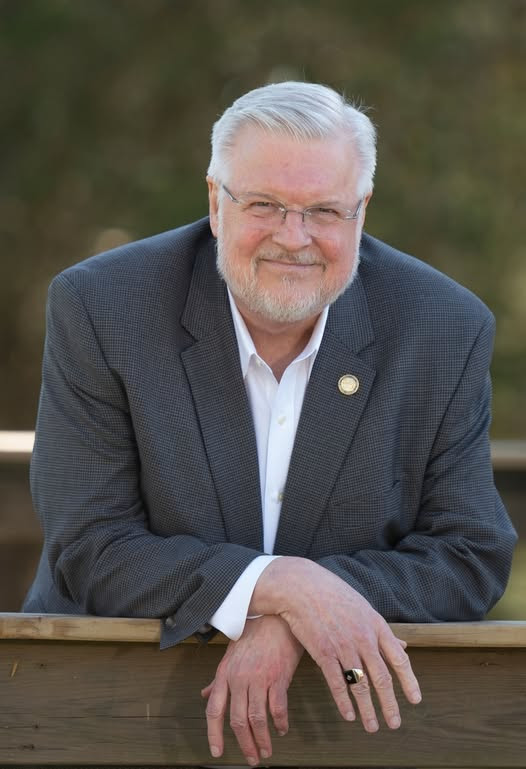By Dr. Mark Creech
Return America
Lawmakers reconvened in Raleigh this week, Monday through Wednesday (October 20–23), to conduct the people’s business. Although potential action on several vetoed measures was calendared, no legislation for veto overrides was taken up during the three days lawmakers were in session.
The short workweek proved largely procedural. Both chambers’ primary focus was on Senate Bill 249 – Realign Congressional Districts 2025, a measure redrawing North Carolina’s congressional map in response to President Donald Trump’s request. Debate over the new boundaries consumed most of the General Assembly’s time.
Amid the focus on redistricting, the House also approved Senate Bill 378 – Align Medicaid Eligibility with Federal Law, and sent it to Governor Stein for consideration.
Let’s look at each of these.
Veto Overrides
Although no veto overrides were taken up this week as expected, the measures remain eligible for consideration later. They are not dead. In North Carolina, vetoed bills do not expire unless the General Assembly adjourns sine die at the end of its two-year term. Legislative leaders typically wait for sufficient support to ensure success before calling for an override vote. Therefore, each of the following bills – which will remain on the House calendar – is still very much alive and could be revisited at any time:
- SB 227 – Eliminating DEI in Public Education – Abolishes “diversity, equity, and inclusion” offices and programs in K–12 schools.
- SB 558 – Eliminating DEI in Public Higher Education – Expands the same restrictions to universities and community colleges.
- HB 171 – Equality in State Agencies / Prohibition on DEI – Bans state agencies from using taxpayer funds or official resources to promote diversity, equity, and inclusion (DEI) programs, training, or hiring practices.
- HB 87 – Educational Choice for Children Act (ECCA) – Allows North Carolina to participate in a federal tax-credit scholarship program, giving donors credits for contributions to approved scholarship organizations that help families afford private or faith-based education.
- SB 153 – North Carolina Border Protection Act – Strengthens cooperation with federal immigration authorities and bars sanctuary policies.
- SB 50 – Freedom to Carry NC (“Constitutional Carry”) – Allows law-abiding adults to carry concealed firearms without a permit while maintaining reciprocity through the existing permitting system.
These measures have drawn strong support from conservative and faith-based communities. They touch on fundamental issues of education, family, liberty, and gun rights. While lawmakers took no action on them this week, they remain eligible for future votes whenever leadership determines the timing is right.
Congressional Map
Return America attended the committee hearings and chamber debates as the North Carolina General Assembly approved a new congressional map this week that will significantly shape the state’s political landscape for many years.
On Tuesday, October 22, the Senate approved SB 249 – Realign Congressional Districts 2025, and the following day, Wednesday, October 23, the House of Representatives gave final passage to the initiative on a 66 – 48 vote. The new map, developed by Sen. Ralph Hise (R–Mitchell County), is designed to give Republicans an additional U.S. House seat for North Carolina.
Sen. Hise told colleagues during committee hearings that the motivation behind the redraw was “simple and singular”- to ensure that congressional representation better reflects the state’s conservative majority and current political realities.
The new boundaries make the 1st Congressional District, represented by Democrat Rep. Don Davis, more Republican-leaning. Davis narrowly won reelection in 2024 in a district that had previously supported President Donald Trump, but under the new lines, the 1st District becomes far more competitive for the GOP.
Under this new configuration, Republicans could hold as many as 11 of North Carolina’s 14 congressional seats, further strengthening their representation in Washington, the nation’s capital.
Because Governor Josh Stein does not have veto power over redistricting legislation, the new map will automatically go into effect ahead of the 2026 congressional elections, when Republicans will seek to maintain their narrow majority in the U.S. House of Representatives.
The process was fraught with much controversy. During hearings, Democrats accused Republicans of diluting the political influence of minority voters to gain a partisan advantage. Protesters interrupted proceedings several times, chanting “Racist maps, make racist Reps.!” as they were escorted from the committee rooms.
On Thursday, Civil rights leader Bishop William Barber denounced the new congressional map as “racist” and pledged to challenge it in court, arguing it weakens the voting power of Black communities in eastern North Carolina’s 1st District. Republican leaders maintain the redraw was based on political data, not race, and reflects the state’s consistent preference for conservative representation.
Defunding Planned Parenthood
On Wednesday, the North Carolina House passed SB 378 – Align Medicaid Eligibility with Federal Law, which prohibits Medicaid funding for Planned Parenthood, aligning with the federal “One Big Beautiful Bill Act.” The Senate passed the measure back in May.
The bill aims to align North Carolina’s Medicaid eligibility with federal law, but its primary provision is the ban on state Medicaid dollars going to organizations that provide abortions.
The bill passed the House 61–47, with mostly party-line support. All Democrats opposed it except two (one was absent and the other in jail), and most Republicans supported it (two not voting and eight excused absences). Senate Bill 378 was not sent to the Governor but was returned to the Senate, along with three other measures – SB 405 (Healthcare Investment Act), SB 599 (State/Teacher Pay & Local LEO Bonus), and HB 491 (Medicaid Rebase Funding) – after being ruled ineligible for consideration under the adjournment resolution adopted by both chambers.
Democrats railed against the bill with the usual pro-choice talking points. Yet many also downplayed Planned Parenthood’s abortion business and elevated its broader work in women’s health, emphasizing services such as cancer screenings, contraception, and STD testing.
Rep. Neal Jackson (R–Moore), however, eloquently and succinctly explained the impetus for the bill, arguing on the House floor:
“Today, the House is deciding if we are going to comply with Federal legislation supported by the Supreme Court in Medinna v. Planned Parenthood, affirming the states’ rights to stop abortion providers from receiving Medicaid funds.
“Planned Parenthood is an activist organization using strategic marketing not only to sell abortions, but also chemical castration drugs not approved by the FDA for gender transitioning.
“They are the number two provider in the country for experimental gender transitioning services, and every North Carolina clinic sells gender transition services to children. We should stop forcing taxpayers to fund Planned Parenthood, an overtly political organization that preys on pregnant women in crisis and gender confused people for profit.
“Taxpayers should not be forced to be investors in Planned Parenthood’s atrocities. This bill simply redirects Medicaid funding to non-political community health centers, which provide true health care.”
SB 378 may be reconsidered when the General Assembly reconvenes next year.
As the gavel fell on Wednesday’s House session, Speaker Destin Hall announced that lawmakers are not expected to return before the end of the year for any additional voting sessions.The General Assembly ends 2025 with budget negotiations still at a stalemate and key measures awaiting future action, closing a year marked by sharp debates over redistricting, education, the sanctity of life, and even gun rights.
While legislators pause, God’s people must not. Scripture reminds us, “To everything there is a season, and a time to every purpose under heaven” (Ecclesiastes 3:1). This recess is a time for prayer and preparation so that when lawmakers return to Raleigh, they may do so with renewed moral clarity and a steadfast commitment to govern in righteousness.


